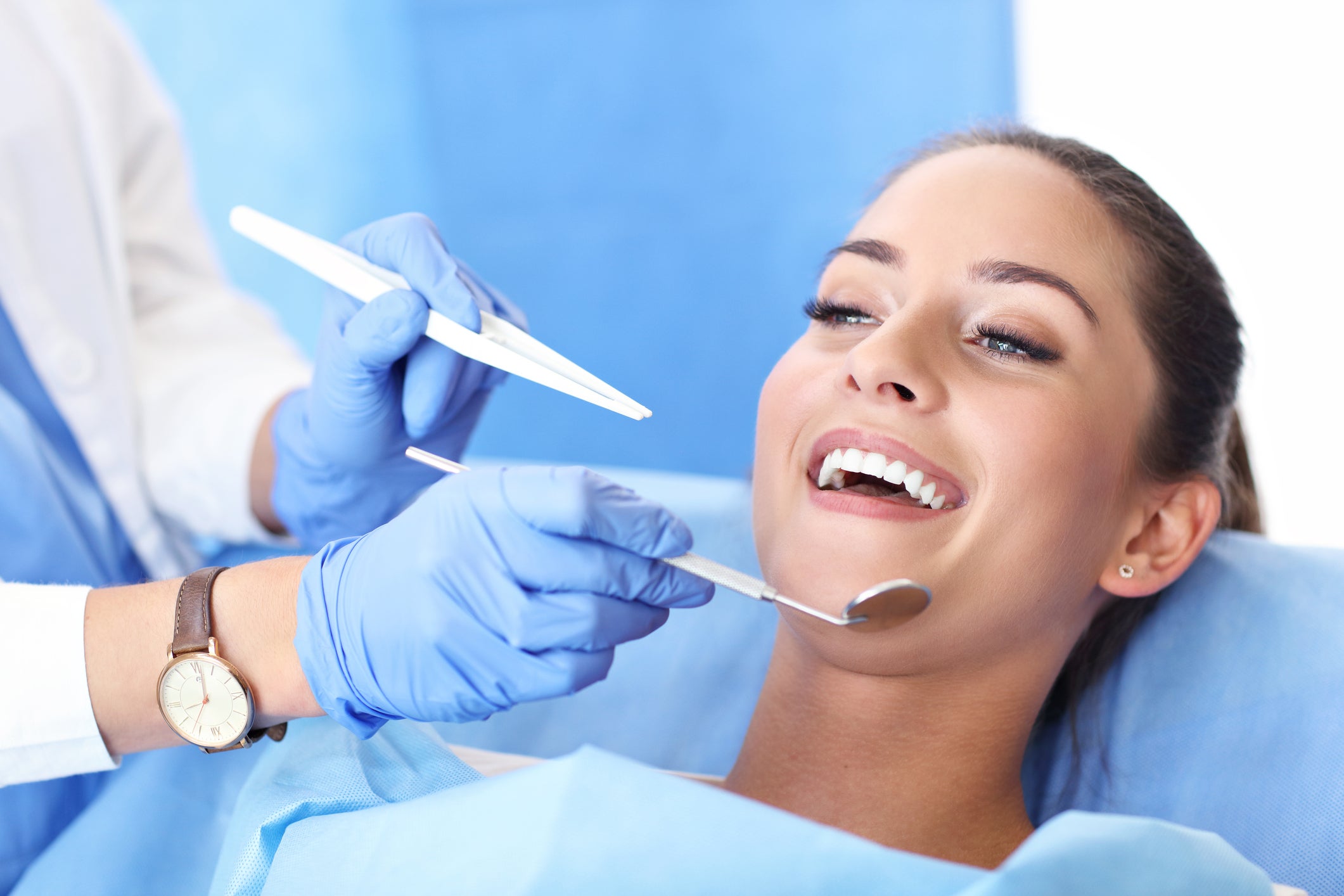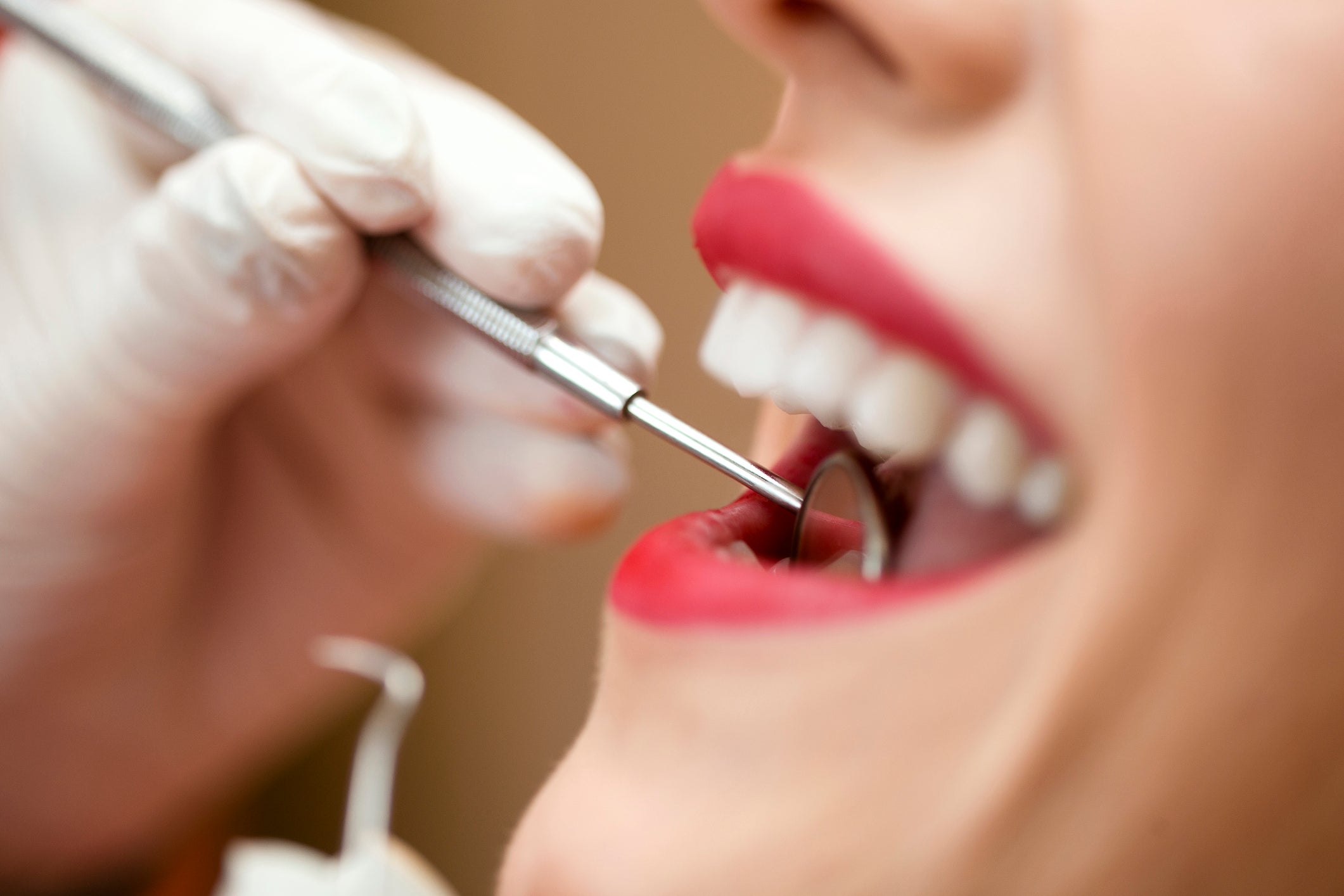-
The Link Between COVID-19 and Your Teeth and Oral Health

Every patient reacts to the novel coronavirus differently. Some people have difficulty breathing or experience weeks of severe fatigue. Others develop a high fever or lose their sense of taste and smell. Recent evidence suggests that the infection may also impact a patient’s teeth and gums. Learn which oral health conditions have been linked to COVID-19.
Gum Disease and Inflammation
Doctors believe that COVID-19 raises cytokine and interleukin levels in the body, which leads to a generalized increase in inflammation. Painful, inflamed gums are a common side effect in patients with elevated cytokines and interleukins.
It also appears that people with gum disease are far more likely to be admitted to the ICU, require a ventilator, or pass away from COVID-19 than people without existing oral health problems. Doctors suspect this is the case because gum disease causes systemic inflammation, which only worsens when the coronavirus infection sets in.
Dry Mouth
If COVID-19 infects the salivary glands, the quality and quantity of saliva are diminished. Lack of saliva can lead to dry mouth, also known as xerostomia.
The need to wear masks during the pandemic means that even those who have not contracted COVID-19 are at a higher risk of dry mouth. Many people breathe through their mouth to increase air intake while wearing a mask, which can dry out oral tissues. Wearing a mask also makes it more difficult to drink water throughout the day, leading to dehydration and dry mouth.
Low Blood Flow to Oral Tissues
The coronavirus damages blood vessels, which can lead to oxygen deprivation throughout the body, including the mouth. This can cause sensitive gums, oral ulcerations, and tissue breakdown, all of which are exacerbated by the increased inflammation found in people with COVID-19.
Disrupted blood flow to the mouth can also cause teeth to turn gray, become loose, and fall out with no blood loss. These problems, along with other dental flare-ups, may occur months after recovering from COVID-19.
Cracked Teeth
Since the pandemic started, dentists around the country have reported a tremendous increase in patients with fractured teeth, even among those who have never contracted COVID-19. The likely culprit is an increase in nighttime tooth grinding, also known as bruxism. Three pandemic-related factors could be to blame for rising cases of bruxism in the past year—stress, sleep deprivation, and poor orthopedic posture caused by makeshift at-home workstations.
Whether you have contracted COVID-19 or not, one of the best ways to protect your teeth and gums is to visit the dentist regularly. Park 56 Dental in NYC is taking steps to prevent the spread of COVID-19 in our office, making it safe for anyone without symptoms to seek in-person care.
Let us help you combat oral health concerns resulting from the pandemic. We also provide routine cleanings and exams to prevent dental problems before they start. To schedule an appointment at our spa-like dentist office, please call Park 56 Dental at (212) 826-2322 or contact us online.
-
Should You Visit the Dentist During the Coronavirus Pandemic?

For several weeks in early 2020, dentists in New York City and elsewhere across the globe were required to stop providing non-urgent care in response to the novel coronavirus pandemic. As we resume our “new normal,” many patients are asking—is it still too early to visit the dentist?
Rest assured that the American Dental Association (ADA) and the Centers for Disease Control and Prevention (CDC) are now allowing patients to return to the dentist for routine cleanings, cosmetic dentistry, and other elective services—with a few changes in place. Here’s what you should know before visiting the dentist during the COVID-19 pandemic.
Is My Dentist’s Office Safe?
Germs are everywhere, but healthcare facilities, including dentist’s offices, have always been among the cleanest places you could go. Many safety guidelines have been the norm for years, including regularly washing your hands, sterilizing tools, and discarding certain gear and needles after a single use.
In light of the pandemic, many dentists, including Park 56 Dental in NYC, are doing even more. Here are some of the steps we’re taking to ensure patient safety and comfort:
- Conducting pre-visit health screenings and contactless temperature checks for all visitors and staff
- Making masks and hand sanitizer available upon request
- Staggering check-ins to minimize wait times and help maintain social distancing
- Holding virtual appointments to answer questions or conduct follow-ups
How “Essential” are Dentist Visits?
The fact that dentist offices were shut down for everything but emergency procedures could make some people think that routine teeth cleanings aren’t that important. However, the condition of your teeth and gums can greatly impact your overall health. In fact, putting off routine cleanings could compound dental problems and other health issues in the months and years to come.
The practical precautions that dentist offices are currently taking are effective at reducing the risk of coronavirus transmission while allowing you to care for your teeth and gums. Skipping your appointments any longer than necessary is simply not worth the risk to your oral health.
What to Consider Before Going to the Dentist
Social distancing is the best way to slow the spread of the coronavirus. If you have symptoms of COVID-19, you should self-isolate for 14 days. In short, cancel your dentist appointment if you’re not feeling well. You’ll be sent home if you come in with a cough, fever, or shortness of breath. You should also stay home if you think you have been around anyone who has the coronavirus, whether or not they have tested positive.
Park 56 Dental in NYC is open for business! Anything that can be done remotely, such as payments or health questionnaires, will be handled over the phone or via email. We are taking COVID-19 restrictions seriously and place your safety above all else. Please call us at (212) 826-2322 or contact us online to ask questions about our coronavirus precautions or to schedule an appointment. We look forward to hearing from you soon.
RECENT POSTS
categories
- Uncategorized
- Cosmetic Dentistry
- Veneers
- Healthier Teeth
- Teeth Whitening
- Dental Health
- Video
- Dental Emergencies
- Invisalign
- Dental Implants
- Root Canal
- Sedation Dentistry
- Infographic
- Dental Crowns and Bridges
- Dental Anxiety
- Gum Disease
- COVID-19
- Bad Breath
- New York Dentist
- Cut out sugar
- General Dentistry
- Oral Health
- Oral Cancer
- Dry Mouth
- Gum Health
- Toothache
- Dental Sealants
- Cavities
